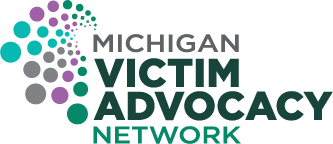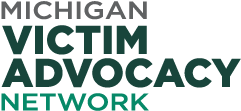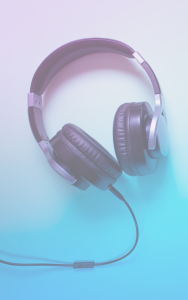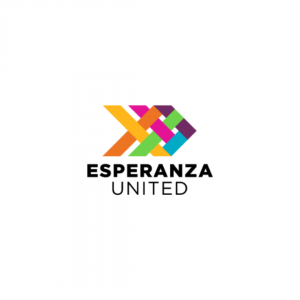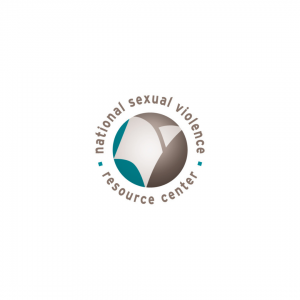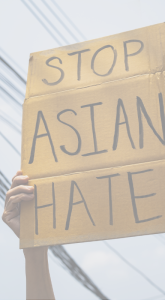Courageous Spirit: The Effects of Historical Trauma on AI/AN Communities
This session will identify the historical and traditional ways that domestic and sexual violence were addressed in American Indian and Alaska Native (AI/AN) communities prior to colonization and how historical experiences persist to have residual trauma in the community. Recommendations will be provided to improve advocacy for native communities that have been affected by domestic and sexual violence.
The Impact of Human Trafficking in Native and Tribal Communities
This webinar, featuring Nicole Matthews, Executive Director, Minnesota Indian Women’s Sexual Assault Coalition, and Em Loerzel, MSW, Project Beacon Program Manager, American Indian Center of Chicago provided an overview of human trafficking in Indian country and urban population centers, discussing what sex and labor trafficking look like for the American Indian/Alaska Native (AI/AN) population, and the culturally appropriate resources available to better serve victims. It also included approaches for “mainstream” responders and service providers to identify and outreach to, largely invisible, AI/AN victims and work with urban AI/AN organizations to engage victims and provide services.
Developing and Implementing a Response to Sexual Assault in Tribal Communities
The Office for Victims of Crime (OVC), in partnership with the Office on Violence Against Women (OVW) and Indian Health Service (IHS), held a National Roundtable Discussion on Sexual Assault in Indian Country with a multidisciplinary group of professionals with expertise in developing, implementing, or enhancing a sexual assault response in tribal communities. Through the report generated from that discussion, OVC, OVW, and IHS seek to share lessons learned and practical guidance from the roundtable participants, including tribal governments and responders to sexual violence.
Tribal Elder Protection Team Toolkit: Developing Your Team
Presenters Jacqueline S. Gray and Sloan M. Henry of the National Indigenous Elder Justice Initiative review the new Tribal Elder Protection Team Toolkit, a resource designed to assist tribal communities in developing tribal elder protection teams (EPT).
The toolkit aims to help identify vested partners or potential EPT members to help respond to elder abuse in Indian Country. The speakers will cover each section of the EPT Toolkit, how to develop a tribal EPT and Tribal Elder Protection Codes, selecting team members, and additional tips on culturally sensitive and appropriate practices commonly accepted in tribal communities.
Sacred Sites Training Video
This training video for federal employees and contractors was developed in coordination with subject matter experts from across the Federal Government, Indian Country, Academia and Tribal Advocacy Groups. This training was finalized in Fall 2016 with assistance from the Department of Justice’s National Indian Country Training Initiative.
Special Collection: Cultural Competency/Humility & Ally-Building in Indian Country
This Special Collection is developed to support cultural competency/humility initiatives, and educational or research projects requiring Native specific information and resources. The Special Collection provides background reading, research, organizational information, ally-building and cultural competency resources focused on Indian Country and domestic and sexual violence.
Special Collection: Missing and Murdered Indigenous Women & Girls
This Special Collection is developed to highlight the issues, concerns, recommendations and resources for addressing Missing and Murdered Indigenous Women and Girls (MMIWG) within our communities. The Special Collection organizes information, resources, tips, and curricula drawn from the wealth of information gathered from partner organizations, experts from the field, and other allies from the web.
Colonization, Homelessness, and the Sex Trafficking of Native Women
This paper seeks to illustrate the impact of human trafficking on Native women and girls in our times, with particular attention to the historical context in the United States and the interconnection between trafficking and housing instability. [11 pages]
Full Faith and Credit, Protection Orders and Safety for Native Families
This document describes the Full Faith and Credit provision under the Violence Against Women Act (VAWA), which requires every court in the United States to recognize and enforce valid protection orders of other courts. [8 pages]
Garden of Truth-The Prostitution and Trafficking of Native Women in Minnesota
This document assesses the life circumstances and needs of Native women in prostitution in Minnesota, a group of women who are at extremely high risk for violence and emotional trauma, and who have not previously been studied in research such as this. [72 pages]
Sexual Violence Against Women and Children in Indian Country Fact Sheet
A fact sheet developed by the National Indigenous Women’s Resource Center about sexual violence against Native women and children. [2 pages]
Strong Families Respect Each Other: What Native Youth Need to Know About the Connection Between Sexual Assault and Domestic Violence
This booklet contains definitions on domestic violence and sexual assault, examples of sexual assault, myths and truths about sexual assault, what to do if you have been sexually assaulted, what to do if you know or think a friend or family member has experienced sexual assault, our power as life-givers and cool apps that can help prevent violence. [12 pages]
Violence Against American Indian and Alaska Native Women and Men Fact Sheet
A fact sheet developed by the National Indigenous Women’s Resource Center about sexual violence against Native men and women. [1 page]
Crime Victims in Indian Country and the Rights They are Owed
This presentation by the National Indigenous Women’s Resource Center will address the need for advocacy and the necessity of providing victims of crime in tribal communities with the rights they are owed pursuant to federal and tribal law. The speaker will cover the federal Crime Victims’ Rights Act and relevant tribal codes. [75 minutes]
Mending the Rainbow: Working with the Native LGBT/Two-Spirit Community
This webinar from the National Indigenous Women’s Resource Center is designed for tribal communities and provides culturally based responses to the needs of Native lesbian, gay, bi-sexual, transgender and/or two-spirit (LGBT/2S) survivors. Violent victimization among Native LGBT/2S individuals is a critical issue that service providers must be made aware and how to assist with victims from this specific population. [75 minutes]
Special Collections: WAS Talks
This Special Collection, made by the National Indigenous Women’s Resource Center and inspired by TED Talks, consists of the stories of fifteen women who spoke their truths at the 2018 Women Are Sacred conference. [Fifteen videos between 3-30 minutes]
Tille Black Bear Women Are Sacred Day: Call to Action to be a Good Relative
This celebratory webinar highlights the milestones leading up to and since the passage of the Violence Against Women Act in 1994 for Tribal Nations and Alaska Native Villages. It shares the voices of key players in the implementation of this vital legislation. [90 minutes]
Sliver of a Full Moon Screening and Panel Discussion
Presented by DVS on October 29, 2020. A special screening of Sliver of a Full Moon in honor and observance of October as Domestic Violence Awareness Month. Sliver of a Full Moon is a powerful production that shines light on the fight to include protections for Native women in the Violence Against Women Act (VAWA). [3 hours]
